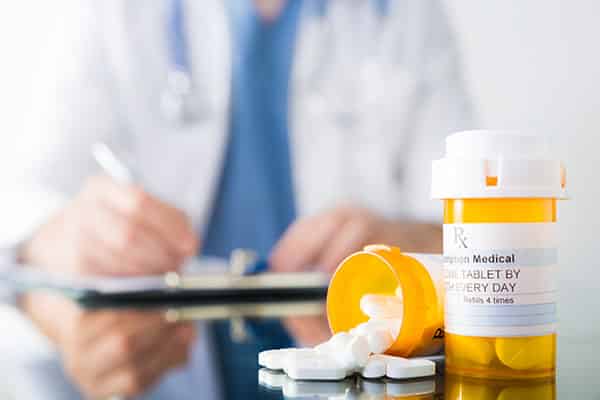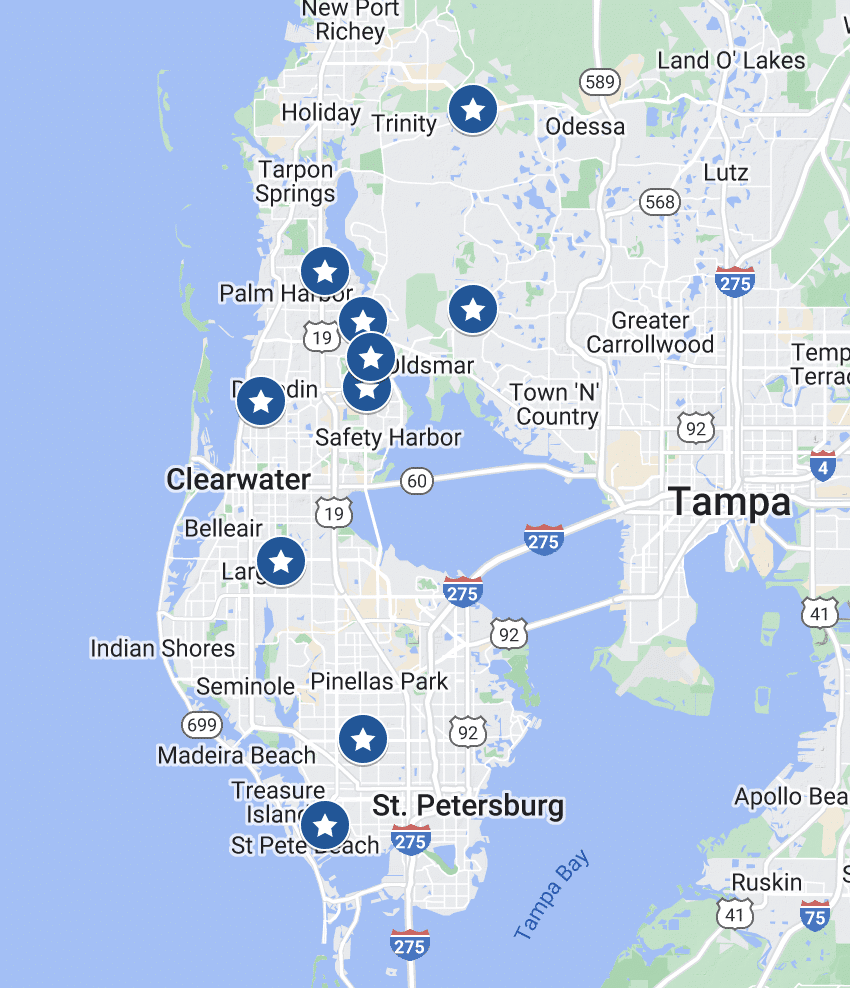Pharmacist Now on Your Care Team
 Your best care happens when everyone is working together on your behalf. That’s why we’ve opened a pharmacy for AUI patients needing medication for prostate cancer or erectile dysfunction. When your urologist, pharmacist, and other AUI specialists are working together, they can help ensure you’re receiving the treatment that’s best for you.
Your best care happens when everyone is working together on your behalf. That’s why we’ve opened a pharmacy for AUI patients needing medication for prostate cancer or erectile dysfunction. When your urologist, pharmacist, and other AUI specialists are working together, they can help ensure you’re receiving the treatment that’s best for you.
If your insurance plan qualifies, the AUI pharmacy has a home-delivery service available for AUI patients needing prescriptions filled for prostate cancer or erectile dysfunction. Simply tell your AUI provider that you want your meds delivered to your home, or call the AUI pharmacy at 727-241-4994 to make your request. NOTE: Not all insurance plans will cover home delivery. Give us a call to find out if yours does.
One more benefit…
Prostate cancer medications are costly. That’s why we’ll apply for funding on your behalf to make them more affordable.
We hope you’ll take advantage of our home-delivery pharmacy service. We think having an entire team of AUI specialists working together will help ensure the best care possible.
6 Symptoms of Hormone Imbalance (and 1 simple resolution)
Hormones play a critical role in how we feel. So when our body produces less hormone (common as we age), the results can be troubling:
- Lack of energy and fatigue
- Reduced sexual desire or sexual performance
- Trouble sleeping
- Reduced mental focus and memory
- Weight gain or loss of muscle
- Hot flashes
Sound familiar? Hormone imbalance can really have a negative impact on your life! But you don’t have to live with it.
At AUI we work with both men and women to optimize their hormones, naturally resolving the effects of hormone imbalance (including testosterone and estrogen). We offer treatments that range from topical/gels to oral medications to pellets under the skin.
We invite you to give us a call or go online to learn more or get started about hormone therapy.
6 Travel Tips if You’re Experiencing OAB

As many as 40% of women and 30% of men experience overactive bladder (OAB), the sudden urge to urinate that is difficult to control. During travel, when bathrooms may be hard to locate, a little advanced planning can go (and go and go) a long way to avoiding OAB mishaps.
Here are six tips to help you get to the bathroom on time.
- Know the rest stops. A restroom locator app is a big help regardless of your destination.
- Strengthen your bladder. Before leaving, practice urination at scheduled times instead of every time you have the urge. Doing Kegel exercises (pelvic-squeezing exercises for men and women) will strengthen your bladder muscles.
- Watch what you drink and eat. Coffee and carbonated drinks can make OAB worse. So can citrus fruits, tomatoes, spicy foods, and those high in liquid (like cucumbers and watermelon).
- Consider a prescription. Your doctor can prescribe medications that can help control your need to pee. For women, estrogen creams or tablets may provide relief.
- Pack accordingly. Wear clothes that are simple to get off. And bring a day bag with absorbent liners, medications, and extra underwear.
- Talk to a urologist. If you’ve never talked to a urologist about OAB, contact us for an appointment to learn about treatment options. You don’t have to live with OAB.
Don’t let an overactive bladder keep you at home. Our AUI specialists are dedicated to finding a solution that’s right for you.
Learn more about OAB.
 A Guy’s Guide to Sexual Health: Common Male Sexual Health Issues and Treatments
A Guy’s Guide to Sexual Health: Common Male Sexual Health Issues and Treatments
A big percentage of men worry about erectile dysfunction, low testosterone, and other sexual health issues. But a small percentage actually seek professional help. At AUI we treat male (and female!) sexual health conditions every day. So don’t be shy. If something is keeping you from enjoying the sex life you want, schedule a consultation with an AUI urologist. And learn more about common sexual health issues and how they’re treated.
Prostate Cancer Awareness Month: A POINT Can Make All the Difference

It may not seem alarming, but if your PSA level increases by more than 0.75 in one year, it could be prostate cancer. Your PSA number is important, but so is the rate at which it changes. There are men with a PSA of 20 who don’t have prostate cancer and men with a PSA of 2 who do.
What’s crucial is having a baseline. Once you know your normal PSA level, you’ll be alert to any changes the next time you’re tested.
Finding and treating prostate cancer early, when treatment might be more effective, saves lives. If you haven’t had a PSA test in the last year, please don’t wait. Learn more and schedule your PSA test today.




 Your Sexual Health is Too Important to Ignore
Your Sexual Health is Too Important to Ignore


